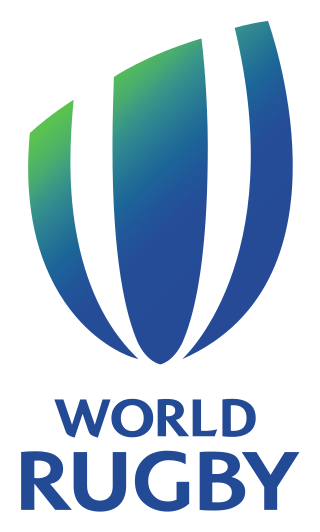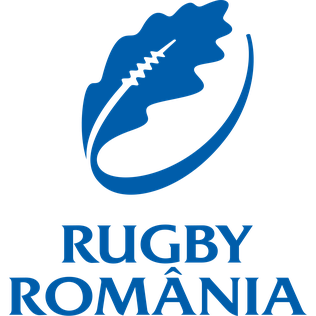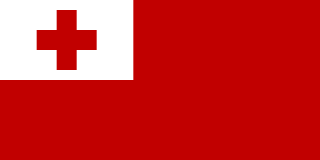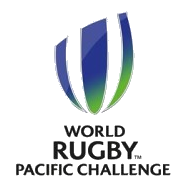
World Rugby is the governing body for the sport of rugby union. World Rugby organises the Rugby World Cup every four years, the sport's most recognised and most profitable competition. It also organises a number of other international competitions, such as the World Rugby Sevens Series, the Rugby World Cup Sevens, the World Under 20 Championship, and the Pacific Nations Cup.

The Romania national rugby union team, nicknamed Stejarii, has long been considered one of the stronger European teams outside the Six Nations. They have participated in all but one Rugby World Cup and currently compete in the first division of the European Nations Cup, which they won in 2017. Rugby union in Romania is administered by the Romanian Rugby Federation.

The Samoa national rugby union team represents the Samoa Rugby Union in men's international rugby union. They are also known as "Manu Samoa", which is thought to derive from the name of a Samoan warrior. They perform a traditional Samoan challenge called the siva tau before each game. Samoa Rugby Union were formerly members of the Pacific Islands Rugby Alliance (PIRA) along with Fiji and Tonga. They are ranked 11th in the world.

The Tonga national rugby union team represents the Tonga Rugby Union in men's international rugby union. The team is nicknamed ʻIkale Tahi . Like their Polynesian neighbours, the Tongans start their matches with a traditional challenge – the Sipi Tau. They are members of the Pacific Islands Rugby Alliance (PIRA) along with Fiji and Samoa. The Ikale Tahi achieved a historic 19–14 victory over France in the 2011 Rugby World Cup, but having lost to New Zealand and Canada, were unable to achieve what would have been their first-ever presence at the quarter-finals.

The Pacific Nations Cup is an international rugby union competition held between Fiji, Samoa, Tonga, Canada, Japan and the United States. First held in 2006, the tournament is intended to strengthen the Tier 2 rugby teams by providing competitive test matches in a tournament format.

The 1993 Rugby World Cup Sevens was held at Murrayfield in Edinburgh, Scotland, in April 1993. This tournament was the inaugural Rugby World Cup Sevens tournament. The International Rugby Board invited the established rugby union nations but also were keen to involve emerging nations in the event, recognising the fact that Sevens was providing the bridge between the developed rugby nations and those whose rugby union traditions were less well established.

The World Rugby Pacific Challenge, formerly the IRB Pacific Rugby Cup, is an annual rugby union football tournament held in Oceania since 2006. It is contested by national 'A' teams from the Asia-Pacific region. The tournament is run by World Rugby through Oceania Rugby.

The Russia national rugby union team, nicknamed Medvedi, represented Russia in men's international rugby union international competitions. The team is administered by the Rugby Union of Russia (RUR). The RUR is considered the official successor union of the Soviet Union by World Rugby and the combined CIS team which played in the early 1990s. Since 1992, the team has played as Russia. Its first test match as Russia was against the Barbarians in Moscow in June 1992 and the country's first test against an official Test nation was against Belgium later that same year.

Rugby union is the national sport of Tonga. Tonga are considered to be a tier 2 rugby nation by the International Rugby Board.

The Trinidad and Tobago national rugby union team has thus far not qualified for the Rugby World Cup, but has participated in qualifying tournaments since 1999. They are classed as a tier-three nation by World Rugby.

The Tonga national rugby sevens team competes in the World Rugby Sevens Series. Tonga has participated in all but one of the Rugby World Cup Sevens tournaments.
The USSR national rugby union team represented the Soviet Union in rugby union until the early 1990s.

Rugby union in Hong Kong is long established, partly as a result of its being a British colony. Rugby union is one of the most popular sports in Hong Kong. In contrast to the People's Republic of China, it has had a continuous existence dating back over a hundred years, and is most notable for the Hong Kong Sevens tournament, the best known of the rugby sevens tournaments. The top domestic club competition is the HKRFU Premiership.
Germany at the 2010–2012 European Nations Cup saw a return of the German national rugby union team to the ENC Second Division, having been relegated without a win from the First Division in 2008–2010. The renaming of division within the ENC however meant, that the former Second Division is now named First Division B. The team struggled in the first half of the competition, only winning one of their five games but improved in the second half, when it won three games, to finish fourth overall and well clear of relegation.
In the Americas Region for 2015 Rugby World Cup qualifying, Argentina had automatically qualified for the World Cup, and two places were available in the Americas qualification process, which were taken by Canada and the United States. An additional Americas team, Uruguay, also qualified as the Play-off winner.
The British Overseas Territories maintain their own entry requirements different from the visa policy of the United Kingdom. As a general rule, British citizens do not have automatic right of abode in these territories.
The 2014–16 European Nations Cup First Division is the premier rugby union competition below the Six Nations Championship in Europe. It is divided into two tiers; Division 1A and Division 1B.
The 2014–16 European Nations Cup Second Division is the third tier rugby union in Europe behind the Six Nations Championship and the 2014–16 European Nations Cup First Division.











